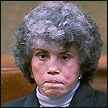Grieving Loved Ones at War Over a Pension
It is sad when a family member dies, and even sadder when the aftermath of the death brings feuding and court actions between loved ones. The parents and fiancée of Kevin Prior, a firefighter killed in the 9/11 attack on the World Trade Center, are embroiled in such a dispute over the $37,600 a year in benefits payable to survivors under Mr. Prior’s pension plan. A 2003 New York State law allowed “domestic partners,” as well as parents and spouses, to collect the pension benefits of firefighters and policemen killed on 9/11. The definition of domestic partner is someone who showed either “unilateral dependence or mutual interdependence” with the deceased based upon a court’s analysis of any relevant factors such as living arrangements, budgeting, length and seriousness of the relationship, and intent to marry. In the case of Mr. Prior’s survivors, the two sides offer completely different versions of the reality that constituted Mr. Prior’s personal relationships.
The fiancée, Doreen Noone, claims that the two lived together for eight months during the 1990s and that Mr. Prior paid most of her bills. She also claims that she spent four or five nights a week with him in his parents’ basement, where he later moved, returning to her own parents’ house only when he was on duty at the firehouse. Prior’s parent flatly deny her account, insisting that none of their boys were allowed to “have girls overnight” in the house. Although they concede that their son had paid approximately $7,000 of Noone’s bills over a three-year period, the Priors contend that the couple did not share budgeting. “All that happened was they had plans for a wedding, and those plans were interrupted,” they say. Mr. Prior’s best friend, Sgt. Edward Wheeler (who is now married to Ms. Noone), supports Ms. Noone’s version of the relationship.


